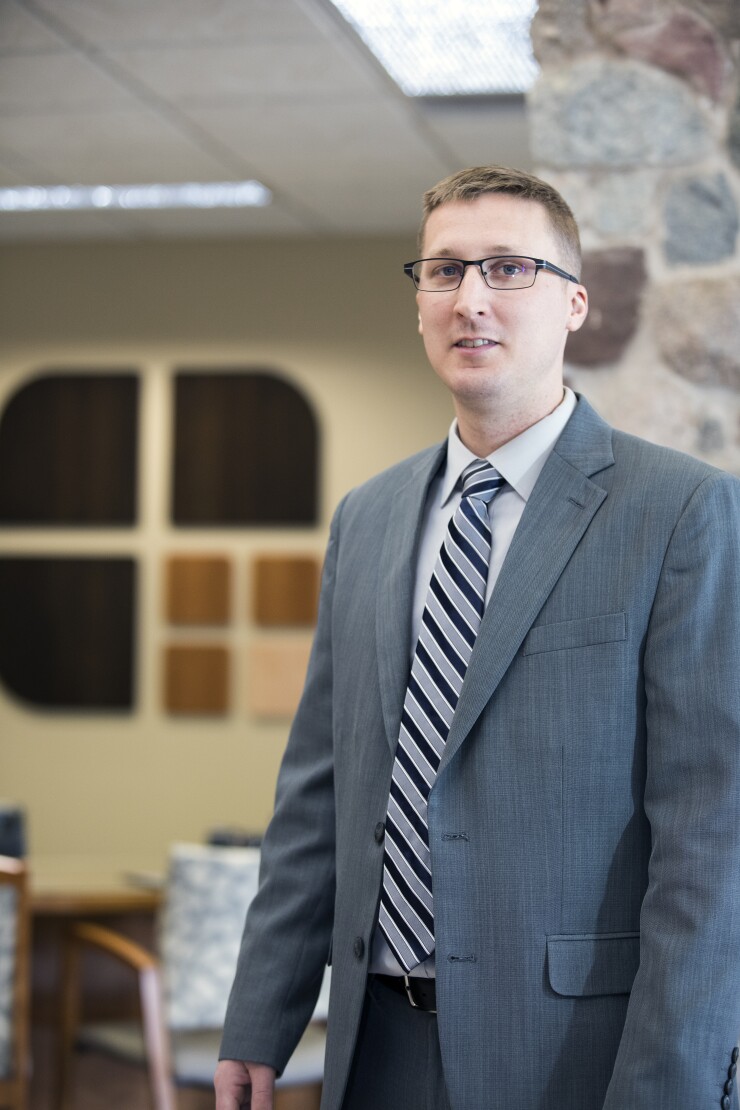Want unlimited access to top ideas and insights?
Credit unions are stepping up in response to massive flooding across Michigan’s Upper Peninsula that caused damage to homes, roads and more.
Michigan Gov. Rick Snyder last week declared a state of disaster in Menominee and Houghton counties following flash flooding brought on by seven inches of rainfall across several counties. Storms during Father’s Day weekend caused flood damage to homes and public facilities, along with mudslides and more than 60 sinkholes.
Two Upper Peninsula credit unions — Michigan Tech Employees FCU and Torch Lake CU — have established a fund for relief donations, with the Michigan Credit Union League and Michigan Credit Union Foundation each donating $10,000. The combined $20,000 — along with other donations — is intended to help offset costs incurred by credit union members across the UP as they deal with replacing furnaces, drywall, flooring, repairing structural damage and more.

“Our hearts go out to our friends, families and the communities that have been impacted by this disaster,” Michigan Credit Union League President/CEO Dave Adams said in a statement. “While I’m saddened to see our communities in distress, I’m encouraged by the immediate outpouring of support from the credit union community. Credit unions work in a uniquely cooperative way to support one another, and that’s on full display today.”
That sentiment was echoed by the CEOs of both Michigan Tech Employees FCU and Torch Lake FCU.

“You can see the pictures and the devastation, but what the pictures don’t show is hundreds of strangers showing up with shovels and digging out someone’s basement in a couple hours,” reflected David Rautiola, CEO of Michigan Tech Employees FCU. “Really thousands of volunteers from our local communities, the whole Upper Peninsula, Wisconsin, even the Lower Peninsula…people have work gloves on, shovels and they just get to work. It really shows to me the spirit of people here in the UP and I would even say the American spirit.”

Rautiola, a former community banker, noted that the credit union movement’s “people-helping-people” spirit is in full force in the wake of the storm.
“The credit unions as a whole, this is a time when you’ve really seen them come together,” he said. “I literally opened six checks today from local credit unions totaling $6,000” for the relief effort.
Connie Mikkola, CEO of Torch Lake FCU, said while the recovery is ongoing, many locals have not yet begun to think about what they might need from their credit union.
“Everybody that’s been affected is still in survival mode,” she told Credit Union Journal. “They’re down there cleaning out. They were still doing call outs for people cleaning mud out of basements yesterday. People really have not had a chance yet to take a breath, to stop with the clean-up and get to the point of ‘What do I need to do?’”
When that happens, both credit unions intend to be ready to help. While the two are receiving donations from CUs across the state that can be distributed as grants, both are also intending to have products for those who need more than the relief funds can provide. MTEFCU has put together a three-year loan at 1 percent interest for up to $3,000 with minimal underwriting. “If someone’s house or property sustained damage, we’re trying to get funds in their hands at pretty much no cost to them,” noted Rautiola. Meanwhile, Torch Lake is planning to cut its auto rate for members impacted by the flood, since the mud and road damage have impacted so many vehicles.
No credit unions in the UP are believed to have sustained damage as a result of the flood, and there has only been one casualty so far.
Michigan’s Upper Peninsula is famous for its long, harsh winters, and the woodsy, remote area is a favorite travel destination throughout the warmer months. Neither CEO said they anticipated the seasonal tourism industry in the region to suffer as a result of the flood damage, in part because the UP is so large – more than 16,000 square miles, including woods, waterfalls, inland lakes and more.
Still, Mikkola said she expects the recovery to last well past the tourist season and into the beginning of winter.
“In our geographic area, we have to start thinking winter,” she explained. “I’m always kind of smart-alecky about it, but you work all summer to fix the repairs of winter. By September you have to start thinking ‘Is my furnace OK? Is my water heater OK?’ Because it’s starting to cool off already [by then]. People are going to have to be proactive and once they get things cleaned out and tested, they’ll have to be quick about getting a new furnace or water heater or any appliances that need to get replaced.”
More information on how to donate is available at mcul.org.





